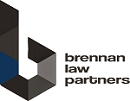Directors Duties: What about School Principals?
Principals are responsible for the management and day-to-day operations and business of the school. They oversee the educational programs and developments in their school and broader educational community and keep the board abreast of these issues.
As the head of the organisation, Principals are bound by the obligations and duties that extend to company directors. In order to ensure that Principals are able to govern their school effectively, they must be aware of and understand their directorial duties and responsibilities. Indeed, the failure to meet certain obligations as a director can give rise to personal liability.
The discussion below identifies some of the most significant duties which Principals are bound by and the consequences of failing to meet those obligations.
The Duties
The duties that are imposed upon directors come from the Corporations Act 2001 (Cth) and from the development of common law. The duties cover the performance of a director’s role and the exercise of their decision making powers.
Duty to act honestly and in the school’s best interest
Directors must do what they honestly believe to be in the bests interests of the school. When making a decision on operational matters, a Principal must ensure that their fundamental concern is the best interests of the school. Ultimately, you are there to further the educational experience of your students and all decisions should be made with this in mind.
When assessing whether this duty has been met, the test is whether an intelligent person, acting as Principal in that particular school would have reasonably believed that those decisions/actions were in the best interests of the school.
Contravention of this duty can result in a decision being voidable at the option of the Board and, in serious cases, damages where that decision results in loss.
To exercise due diligence and care
A Principal will breach this duty where they fail to take proper care in the performance of their role and/or the exercise of their decision making powers. As the head of the school, the Principal must be aware of the goings on of the school and matters of organisational importance. They must ensure that they have all relevant information available to them when making a decision for the governance of the school. It is rarely acceptable for a Principal to say that they were not aware of a matter going on within their school which posed a risk to members of the school community, in any shape or form.
This duty is particularly relevant having regard to issues such as occupational health and safety and the duty of care the school owes to its students. Under section 21 of the Occupational Health and Safety Act (2004) (Vic) a school must ensure, so far as it is reasonably practicable, the health and safety of its workers while they are at work. The OHS legislation requires Principals to be aware of the OHS policies and procedures in places within the school and to ensure that they are up to date and appropriate. Furthermore, the obligation extends beyond the mere existence of a policy and mandates that Principals are aware of how the school OHS policies are enacted, whether they are followed and any potential concerns workers may have.
The failure of a Principal to meet this duty may give rise to civil penalties (fines) in rare cases.
Avoid conflicts between the interests of the company and personal interests
Principals cannot enter into an agreement, arrangement or engagement in which they have a personal interest which conflicts, or which may conflict, with the interests of the school. Principals cannot place themselves in a position where there is an actual or substantial possibility of conflict between the personal interests of the Principal and their duty to the school.
If a Principal encounters a situation where there may be a conflict, they should discuss the matter with their leadership staff and Board and fully disclose any personal interest they may have in the matter. If the board ratifies or consents to the agreement/arrangement, there is no breach of the duty.
To exercise powers for their proper purpose
Principals must use their authority and decision making power for their proper purpose; the proper functioning of their school and the education of the students within their care. A decision made by a Principal that was not made in accordance with the intended purpose of that decision making power will likely result in a breach of this duty.
A transaction or decision stemming from an improper use of power may be voided by the school, unless doing so would prejudice the rights of an innocent third party. In circumstances where that improper use of power results in a loss to the school, the principal may be personally liable for that loss.
If this duty is breached with recklessness or dishonesty, criminal sanctions may be put against the principal.
What should you do to ensure you meet your obligations as a director?
Whilst the duties may sound overwhelming and onerous, they are essentially an enumeration of rules regarding good governance and common sense.
As Principal, you should:
- ensure that your school’s policies and procedures are up to date and effective;
- ensure lines of communication and decision making a clear and transparent;
- ensure that governance (Board) and management (School Leaders) are as separate as possible;
- make sure you are aware of all important matters within your school and matters of significance in the broader education landscape;
- ensure all decisions you make are in the best interests of the school.
Given that Principals can be held personally liable for some failures to meet their directorial obligations, it is imperative that they are aware of their duties and the requirements to meet them.
How can Brennan Law Partners assist?
If you are unsure about your duties as Principal or how they may impact on a particular decision, please feel free to contact us at any time so that we can assist you.
This is meant as a guide only.
Directors Duties






